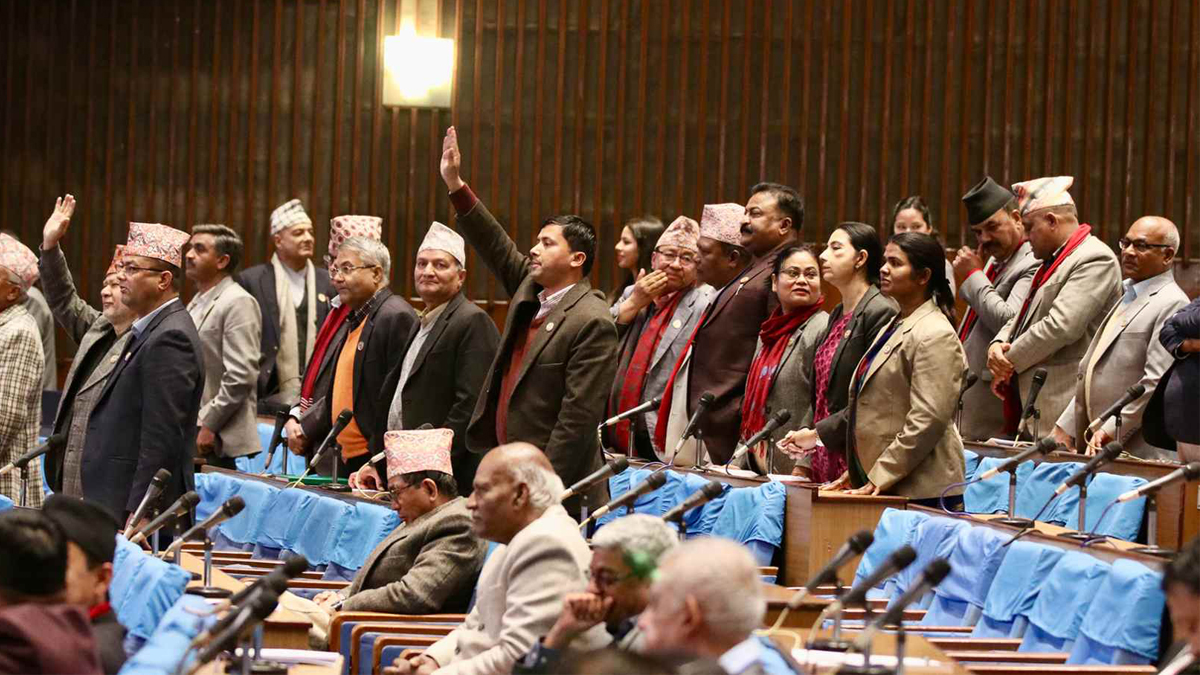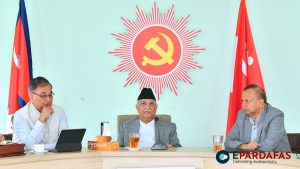
New Term, Same Story: Parliament’s Ineffectiveness Persists

Contrary to the assurances made by the Pushpa Kamal Dahal-led government and the ruling parties regarding the effectiveness of the ongoing Parliament session, Thursday’s meeting of the House of Representatives ended without addressing the agenda due to a lack of quorum.
According to records from the Parliament Secretariat, while initially 205 members were present in the House, most of them left after registering their attendance. This left only 65 lawmakers present when Rekha Sharma, the minister for communications and information technology, attempted to table the bill to amend the Political Parties Act.
Article 94 of the Constitution of Nepal mandates that one fourth of the total members of the House, i.e., at least 69 members, must be present to conduct business. With the absence of the minimum required lawmakers, Speaker Devraj Ghimire adjourned the meeting until the following day.
“The bill couldn’t be presented due to the lack of quorum. Though 205 lawmakers had registered their attendance earlier in the day, only 65 were in the hall,” stated Ek Ram Giri, spokesperson at the secretariat.
Criticism has been directed towards both the government and Parliament leadership for rendering the legislature ineffective. Since its convening in January last year following the November 2022 elections, the federal lawmaking body has only managed to pass one bill, apart from the essential budget-related bills.
Despite claims by ruling party leaders of efforts to introduce and pass numerous bills during the ongoing session which began on February 5, the lack of quorum on Thursday reflects a lack of priority given to House proceedings by lawmakers.
Experts emphasize that Parliament serves as a platform where elected representatives hold the executive accountable. Hence, lawmakers must demonstrate accountability by actively participating in the legislative process.
“The lawmakers must understand that voters are watching them. Skipping House meetings is deceiving the people,” remarked Rajendra Phuyal, a former secretary of the National Assembly.
With the winter session, also known as the bill session, having just two months remaining, various ministries are reportedly working on 109 bills. However, doubts linger about the productivity of the House given its current functioning.
Ruling party leaders acknowledge their failure in ensuring adequate attendance in the House. Rupa Soshi Chaudhari, the CPN (Maoist Centre) whip, attributed the low attendance on Thursday to the ongoing Mahasamiti meeting of the Nepali Congress.
Speaker Ghimire has also directed the government to present the probe report on the Balkumari incident of December 29, which claimed the lives of two youths. Opposition parties have been demanding the resignation of Prakash Jwala, the minister for physical infrastructure and transport, citing implications against him in the probe report.
- Nepali Congress Rejects Loans Under China’s BRI, Pushes for Grant Assistance Ahead of PM Oli’s Visit to Beijing
- Saudi Arabia’s Forward7 Initiative Partners with Sistema.bio to Revolutionize Clean Energy Access in Nepal and Indonesia
- Nepal Caught in China’s BRI Crossfire: Diplomatic Push Sparks Concerns Over Sovereignty and Debt
- China Encourages College Graduates to Join Housekeeping Industry Amid Youth Unemployment Woes












Comments